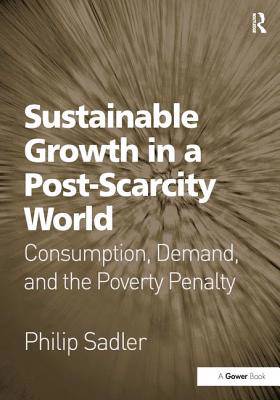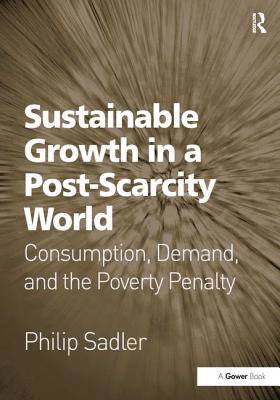
- Retrait gratuit dans votre magasin Club
- 7.000.000 titres dans notre catalogue
- Payer en toute sécurité
- Toujours un magasin près de chez vous
- Retrait gratuit dans votre magasin Club
- 7.000.0000 titres dans notre catalogue
- Payer en toute sécurité
- Toujours un magasin près de chez vous
Sustainable Growth in a Post-Scarcity World
Consumption, Demand, and the Poverty Penalty
Philip Sadler
Livre relié | Anglais
202,95 €
+ 405 points
Format
Description
Over 20 years ago Philip Sadler, then head of a leading British business school, wrote Managerial Leadership in the Post-Industrial Society. In it he predicted that business would experience the most radical transformation since the Industrial Revolution of the 19th century. This transformation has now taken place. In his latest book, Sustainable Growth in a Post-Scarcity World, Sadler charts developments once envisaged by Keynes, Chase, Galbraith and Packard, and more recent radical thinkers such as Chris Anderson. Sadler describes how many goods and services have moved from relative scarcity to relative abundance, and asks how this trend can be reconciled with the global issues of population growth and climate change. He assesses the impact of new technologies, new energy sources, new materials and the development of artificial intelligence, on business, government and economics, and discusses the challenges ahead - the creation of new business models, the need to meet people's legitimate expectations of improved living conditions while avoiding environmental catastrophe, and the need to adapt ideas developed in scarcity to conditions of abundance. Why is it that in countries foremost in creating post-scarcity conditions, millions are still in poverty, and billions, worldwide, still lack basic necessities of life? Philip Sadler agrees with those who say the relief of global poverty cannot rely on aid and corporate philanthropy. He explores the idea of re-engineering products and delivering them into bottom-of-the-pyramid (BOP) markets, and concludes that the more global companies take this route, as some are already doing, the more profitable they will find it, and this will in turn help the poorest people who currently pay more for goods and services - the 'poverty penalty' - than the rich.
Spécifications
Parties prenantes
- Auteur(s) :
- Editeur:
Contenu
- Nombre de pages :
- 264
- Langue:
- Anglais
Caractéristiques
- EAN:
- 9780566091582
- Date de parution :
- 28-12-10
- Format:
- Livre relié
- Format numérique:
- Genaaid
- Dimensions :
- 175 mm x 246 mm
- Poids :
- 649 g

Les avis
Nous publions uniquement les avis qui respectent les conditions requises. Consultez nos conditions pour les avis.






